Men's singles
| Event | Gold | Silver | Bronze |
|---|---|---|---|
| 2002 | |||
| 2006 | |||
| 2010 | |||
| 2014 | |||
| 2018 | |||
| 2022 |
This is the complete list of Commonwealth Games medallists in table tennis from 2002 to 2014.
| Event | Gold | Silver | Bronze |
|---|---|---|---|
| 2002 | |||
| 2006 | |||
| 2010 | |||
| 2014 | |||
| 2018 | |||
| 2022 |
| Event | Gold | Silver | Bronze |
|---|---|---|---|
| 2002 | |||
| 2006 | |||
| 2010 | |||
| 2014 | |||
| 2018 | |||
| 2022 |
| Event | Gold | Silver | Bronze |
|---|---|---|---|
| 2002 | and Gareth Herbert (ENG) | and Ryan Jenkins (WAL) | and Zhang Tai Yong (SIN) |
and Chetan Baboor (IND) | |||
| 2006 | and Segun Toriola (NGR) | and Andrew Rushton (ENG) | and Yang Zi (SIN) |
| 2010 | and Subhajit Saha (IND) | and Yang Zi (SIN) | and Liam Pitchford (ENG) |
| 2014 | and Li Hu (SIN) | and Anthony Amalraj (IND) | and Zhan Jian (SIN) |
| 2018 | Liam Pitchford (ENG) | Sathiyan Gnanasekaran (IND) | Sanil Shankar Shetty (IND) |
| 2022 | Liam Pitchford (ENG) | Sathiyan Gnanasekaran (IND) | Clarence Chew (SGP) |
| Event | Gold | Silver | Bronze |
|---|---|---|---|
| 2002 | and Li Jiawei (SIN) | and Chunli Li (NZL) | and Zhang Xueling (SIN) |
and Miao Miao (AUS) | |||
| 2006 | and Zhang Xueling (SIN) | and Xu Yan (SIN) | and Miao Miao (AUS) |
| 2010 | and Sun Beibei (SIN) | and Wang Yuegu (SIN) | and Poulomi Ghatak (IND) |
| 2014 | and Yu Mengyu (SIN) | and Jian Fang Lay (AUS) | and Zhang Mo (CAN) |
| 2018 | Yu Mengyu (SIN) | Mouma Das (IND) | Karen Lyne (MAS) |
| 2022 | Jian Zeng (SIN) | Jian Fang Lay (AUS) | Anna Hursey (WAL) |
| Event | Gold | Silver | Bronze |
|---|---|---|---|
| 2002 | and Li Jiawei (SIN) | and Jian Fang Lay (AUS) | and Jing Junhong (SIN) |
and Chunli Li (NZL) | |||
| 2006 | and Yang Zi (SIN) | and Cai Xiaoli (SIN) | and Jason Ho (SIN) |
| 2010 | and Yang Zi (SIN) | and Gao Ning (SIN) | and Paul Drinkhall (ENG) |
| 2014 | and Joanna Drinkhall (ENG) | and Tin-Tin Ho (ENG) | and Kelly Sibley (ENG) |
| 2018 | Yu Mengyu (SIN) | Tin-Tin Ho (ENG) | Manika Batra (IND) |
| 2022 | Sreeja Akula (IND) | Karen Lyne (MAS) | Zeng Jian (SIN) |

The Commonwealth Games, often referred to as the Friendly Games or simply the Comm Games, are a quadrennial international multi-sport event among athletes from the Commonwealth of Nations. The event was first held in 1930, and, with the exception of 1942 and 1946, have successively run every four years since. The Games were called the British Empire Games from 1930 to 1950, the British Empire and Commonwealth Games from 1954 to 1966, and British Commonwealth Games from 1970 to 1974. Athletes with a disability are included as full members of their national teams since 2002, making the Commonwealth Games the first fully inclusive international multi-sport event. In 2018, the Games became the first global multi-sport event to feature an equal number of men's and women's medal events and four years later they are the first global multi-sport event to have more events for women than men.
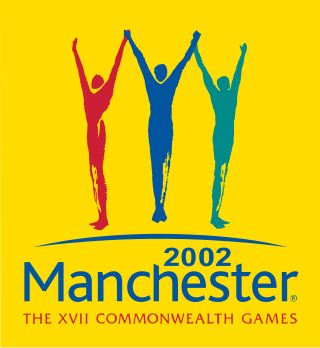
The 2002 Commonwealth Games, officially known as the XVII Commonwealth Games and commonly known as Manchester 2002 were held in Manchester, England, from 25 July to 4 August 2002. The 2002 Games were to be hosted in the United Kingdom to coincide with the Golden Jubilee of Elizabeth II, head of the Commonwealth, and Manchester was selected for the 2002 Games ahead of London using a recycled part of the project, which lost the 2000 Summer Olympics and Paralympics to Sydney, Australia. The 2002 Commonwealth Games were, prior to the 2012 Summer Olympics, the largest multi-sport event ever to be held in the UK, eclipsing the London 1948 Summer Olympics in terms of teams and athletes participating. The 2002 Commonwealth Games had the largest number of events of any Commonwealth Games in history, featuring 281 events across 17 sports.
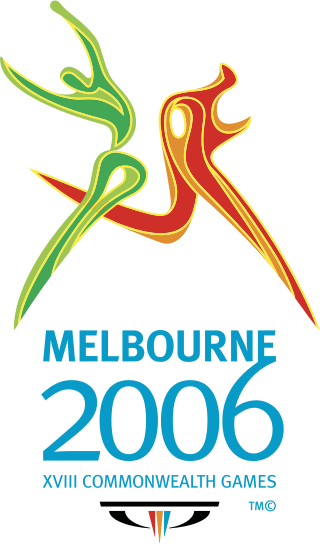
The 2006 Commonwealth Games, officially the XVIII Commonwealth Games and commonly known as Melbourne 2006, was an international multi-sport event for members of the Commonwealth held in Melbourne, Australia between 15 and 26 March 2006. It was the fourth time Australia had hosted the Commonwealth Games. It was also the largest sporting event to be staged in Melbourne, eclipsing the 1956 Summer Olympics in terms of the number of teams competing, athletes competing, and events being held.

The 2010 Commonwealth Games, officially known as the XIX Commonwealth Games and commonly known as Delhi 2010, was an international multi-sport event that was held in Delhi, India, from 3 to 14 October 2010. A total of 4352 athletes from 71 Commonwealth nations and dependencies competed in 21 sports and 272 events, making it the largest Commonwealth Games to date. It was also the largest international multi-sport event to be staged in Delhi and India, eclipsing the Asian Games in 1951 and 1982. The opening and closing ceremonies were held at the Jawaharlal Nehru Stadium, the main stadium of the event.

The 1998 Commonwealth Games(Malay: Sukan Komanwel 1998), officially known as the XVI Commonwealth Games(Malay: Sukan Komanwel ke-16), was a multi-sport event held in Kuala Lumpur, Malaysia. This edition is marked by several unprecedented facts in the history of the event. The 1998 games were the first held in an Asian country and the last Commonwealth Games of the 20th century. This was also the first time the games took place in a nation with a head of state other than the Head of the Commonwealth, and the first time the games were held in a country whose majority of the population did not have English as the first language. For the first time ever, the games included team sports. The other bid from the 1998 games came from Adelaide in Australia. Malaysia was the eighth nation to host the Commonwealth Games after Canada, England, Australia, New Zealand, Wales, Jamaica and Scotland. Around 3638 athletes from 70 Commonwealth member nations participated at the games which featured 214 events in 15 sports with 34 of them collected medals.

The 1994 Commonwealth Games were held in Victoria, British Columbia, from 18 to 28 August 1994. Ten types of sports were featured at the Victoria Games: athletics, aquatics, badminton, boxing, cycling, gymnastics, lawn bowls, shooting, weightlifting, and wrestling.
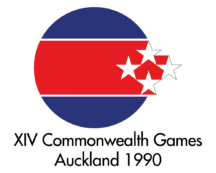
The 1990 Commonwealth Games were held in Auckland, New Zealand from 24 January – 3 February 1990. It was the 14th Commonwealth Games, and part of New Zealand's 1990 sesquicentennial celebrations. Participants competed in ten sports: athletics, aquatics, badminton, boxing, cycling, gymnastics, judo, lawn bowls, shooting and weightlifting. Netball and the Triathlon were demonstration events.
The 1966 British Empire and Commonwealth Games were held in Kingston, Jamaica, from 4 to 13 August 1966. This was the first time that the Games had been held outside the so-called White Dominions. They were followed by the 1966 Commonwealth Paraplegic Games for wheelchair athletes. Jamaica remains the only host nation of a Commonwealth Games that did not win at least one gold medal in its own games.

The 1970 British Commonwealth Games were held in Edinburgh, Scotland, from 16 to 25 July 1970. This was the first time the name British Commonwealth Games was adopted, the first time metric units rather than imperial units were used in all events, and also the first time the games were held in Scotland. Also, these games saw the first unique Games trademark logo: an emblem showing the Games emblem intertwined with a St Andrews Cross and a thistle. They were followed by the 1970 Commonwealth Paraplegic Games for wheelchair athletes.

The 1978 Commonwealth Games were held in Edmonton, Alberta from 3 to 12 August 1978, two years after the 1976 Summer Olympics were held in Montreal, Quebec. They were boycotted by Nigeria, in protest at New Zealand's sporting contacts with apartheid-era South Africa, as well as by Uganda, in protest at alleged Canadian hostility towards the government of Idi Amin. The Bid Election was held at the 1972 Summer Olympics in Munich.
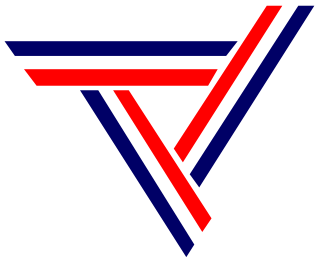
The 1982 Commonwealth Games were held in Brisbane, Australia, from 30 September to 9 October 1982. The Opening Ceremony was held at the QEII Stadium, in the Brisbane suburb of Nathan. The QEII Stadium was also the athletics and archery events venue. Other events were held at the purpose-built Sleeman Sports Complex in Chandler.

The 2014 Commonwealth Games, officially known as the XX Commonwealth Games and commonly known as Glasgow 2014,, was an international multi-sport event celebrated in the tradition of the Commonwealth Games as governed by the Commonwealth Games Federation (CGF). It took place in Glasgow, Scotland, from 23 July to 3 August 2014.

The Commonwealth Youth Games (CYG) is an international multi-sport event organized by the Commonwealth Games Federation. The games were held in the years, mid-way between when the Commonwealth Games are held, until 2008. They continued to be held every four years, but in the year after the Commonwealth Games are held, from 2011 to 2015. Since 2017, they've been held in the year before the Commonwealth Games are held. The first edition was held in Edinburgh, Scotland from 10–14 August 2000. The age limitation of the athletes is from 14 to 18.

The Commonwealth Games Federation (CGF), currently known as Commonwealth Sport, is the international organisation responsible for the direction and control of the Commonwealth Games and Commonwealth Youth Games, and is governing body of the Commonwealth Games Associations (CGA). The headquarters of CGF are located in London, England.
Rugby sevens has been played at every Commonwealth Games since its first appearance at the 1998 edition held in Kuala Lumpur, Malaysia. Rugby sevens was an optional sport that was included for 2002 and 2006; it was then made a 'Core' sport by the Commonwealth Games Federation, necessitating its appearance at all future games from the 2010 Games onward. New Zealand dominated the men's tournament at its inception until 2014 when they lost for the first time at the Games, playing South Africa in the gold medal match. 2022 marked the first time that New Zealand failed to reach the gold medal match in either the men's or women's tournaments.

A Commonwealth Games Association (CGA) is a national sports council of the Commonwealth Sports movement. Each association is responsible for organising, supporting and overseeing their national team for both the Commonwealth Games and the Commonwealth Youth Games. The associations are subject to the rules of, and report to, the Commonwealth Games Federation. As well as promoting sports nationally, an association can also place a bid for the Commonwealth Games for a potential host city. While some nations have a stand-alone association dealing exclusively with the Commonwealth Games (particularly the Home Nations, the Crown Dependencies and most of the British Overseas Territories, all of whom compete at the Olympics as one Great Britain team but compete as separate teams at the Commonwealth Games), in many of the Commonwealth nations, the local National Olympic Committee performs the function of Commonwealth Games Association for that nation. In a few nations, such as Eswatini and Malawi, the local organisation carries both names in its normal title.

The 2018 Commonwealth Games, officially known as the XXI Commonwealth Games and also known as Gold Coast 2018, was an international multi-sport event for members of the Commonwealth that were held on the Gold Coast, Queensland, Australia, between 4 and 15 April 2018. It was the fifth time Australia had hosted the Commonwealth Games and the first time a major multi-sport had an equal number of events for male and female athletes.
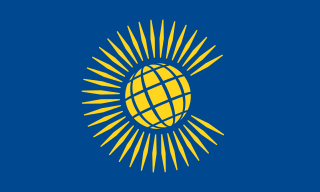
The Commonwealth of Nations, simply referred to as the Commonwealth, is a political association of 56 member states, the vast majority of which are former territories of the British Empire. The chief institutions of the organisation are the Commonwealth Secretariat, which focuses on intergovernmental aspects, and the Commonwealth Foundation, which focuses on non-governmental relations among member states. Numerous organisations are associated with and operate within the Commonwealth.
Athletics is one of several sports contested at the quadrennial Commonwealth Games competition. It has been a Commonwealth Games sport since the inaugural edition of the event's precursor, the 1930 British Empire Games. It is a core sport and must be included in the sporting programme of each edition of the Games.
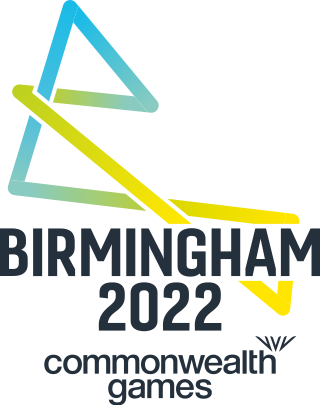
The 2022 Commonwealth Games, officially known as the XXII Commonwealth Games and commonly known as Birmingham 2022, was an international multi-sport event for members of the Commonwealth of Nations that took place in Birmingham, England between 28 July and 8 August 2022.